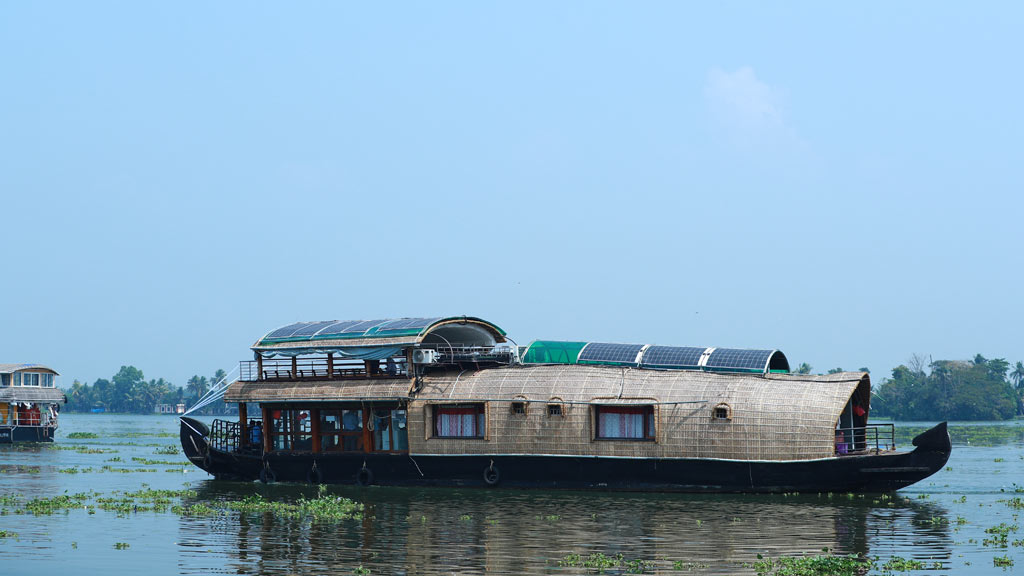Tourism News

Backwater tourism becomes energy efficient
Houseboat industry leaves behind a substantial amount of carbon footprints in environment, resulting in global warming and loss of biodiversity. On an average, a typical fossil-powered houseboat releases about 8 kg of CO2 / hour from propulsion system and a hotel-load standalone generator releases 5 kg of CO2 / hour, according to a survey.
Switching to alternative energy sources will mitigate the threats to environment. For this, Energy Management Centre (EMC) - Kerala and technology partner C-DAC, Thiruvananthapuram, have implemented a solar-powered low-voltage direct current (LVDC) power distribution in houseboats to offset carbon footprints by almost 90 per cent. The annual profit from Rs. 9.38 lakh project is estimated at Rs. 2.5 lakh with repayment in 4 years.
In the system, LVDC architecture is integrated with solar PV system and battery bank. This system can power the houseboat for a whole day without depending on standby grid power. Hotel loads in the houseboats will be fed from a 6kWp mono-crystalline flexible solar PV array (for 2 bedrooms, hall and kitchen). Lighting, fan, AC, geysers and cooking, which accounts for 30-40 per cent of the daily energy cost, will be switched to solar power.
The architecture can be configured to cater to different classes of houseboats based on the connected load. The switching to renewable energy can ring in an annual energy savings of 85 per cent, saving 2,650 litres of petrol for a 2 BHK houseboat. The carbon footprint per guest gets reduced to 0.74 ton CO2/day. Also, the technology change increases the reliability of power supply along with fully eliminating the problem of harmonics, and ensures safety of appliances. It also increases the comfort to tourists due to reduction in noise and vibration.
In the next phase of the project, EMC-CDAC plans to electrify the propulsion (driving) system, which accounts for 60-70 per cent of the energy use.
